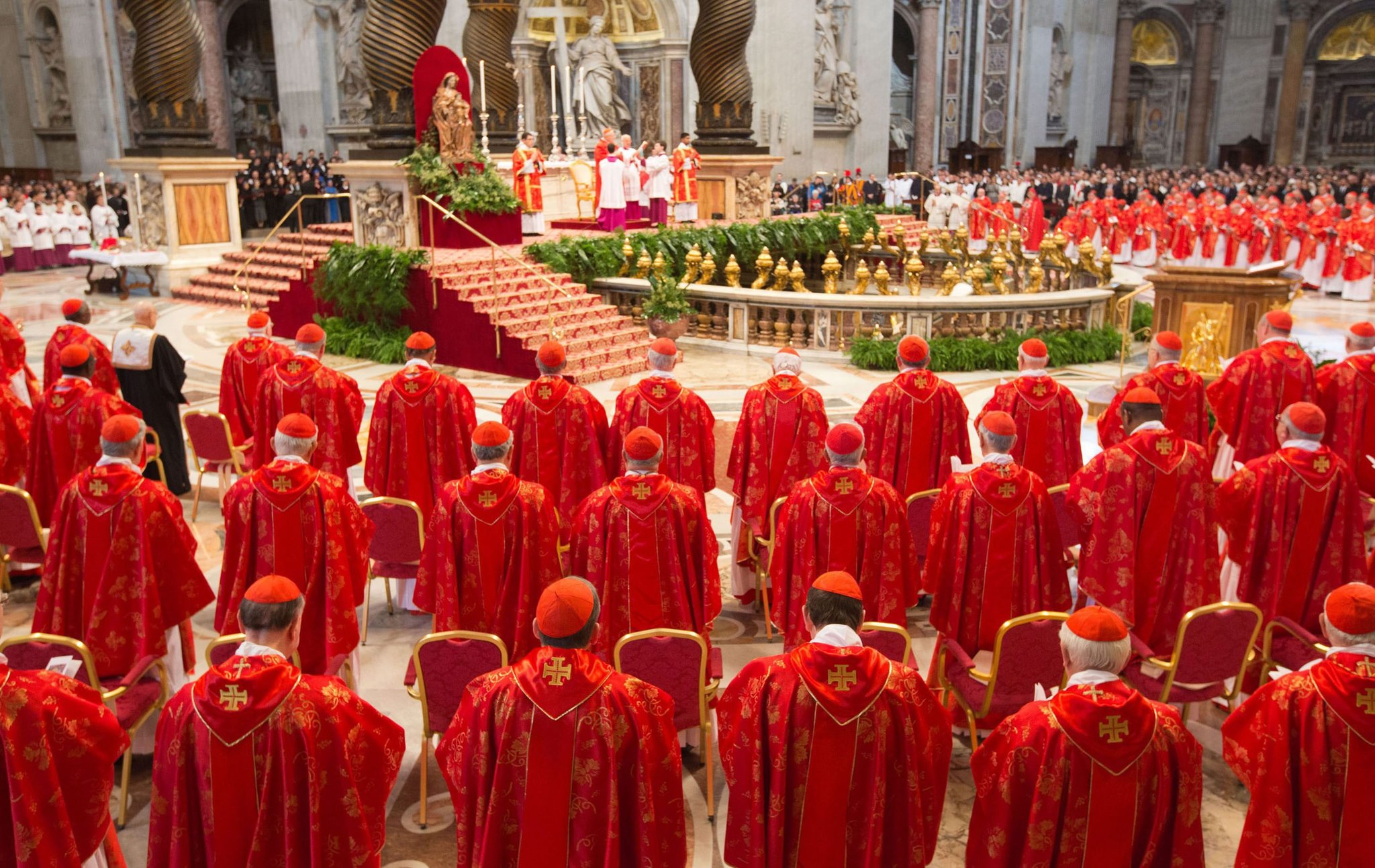Vatican To Block Mobile Signals During Papal Conclave

Table of Contents
Reasons Behind the Mobile Signal Block
The Vatican's decision to implement a mobile signal jamming strategy during the Papal Conclave stems from two primary concerns: maintaining the utmost secrecy and enhancing overall security.
Maintaining Secrecy
The Papal Conclave, a centuries-old process of electing a new Pope, is shrouded in secrecy. This secrecy is not merely tradition; it's crucial to the integrity of the election. Leaks or external influence could severely compromise the process.
- Preventing unauthorized communication with the outside world: A communication blackout minimizes the risk of cardinals being contacted or pressured by external forces.
- Minimizing the risk of external influence or pressure on cardinals: The cardinals' deliberations should be free from outside interference or manipulation.
- Protecting the integrity of the voting process from potential manipulation: Secrecy prevents any attempts to influence the outcome through bribery, threats, or other forms of manipulation.
- Preventing premature dissemination of results: The announcement of the new Pope should be made by the Vatican, not leaked to the press or public prematurely.
Enhancing Security
Beyond secrecy, a mobile signal jam aims to significantly enhance the security of the conclave. Blocking mobile signals acts as a crucial layer of protection against potential threats.
- Preventing unauthorized recording of the proceedings: Jamming mobile signals prevents any surreptitious recording or live-streaming of the highly sensitive conclave proceedings.
- Reducing the risk of cyberattacks or data breaches: While the specifics of the Vatican's internal systems aren't publicly known, a signal block reduces the vulnerability to external cyberattacks targeting the election process.
- Mitigating the potential for misinformation campaigns: Blocking signals helps curb the spread of false information that could influence public perception or cast doubt on the legitimacy of the election.
- Strengthening the physical security of the conclave location: While not a direct security measure in itself, the signal block forms part of a broader security strategy to protect the cardinals and the election process.
Technical Aspects of the Mobile Signal Block
The practical implementation of a mobile signal blackout during the Papal Conclave involves complex technical considerations and potential logistical challenges.
Methods Employed
The Vatican's exact methods remain undisclosed, but several approaches are plausible.
- Signal jammers: These devices emit signals that interfere with mobile network frequencies, preventing communication within a defined area.
- Temporary cell tower shutdown: A more coordinated approach might involve temporarily shutting down cell towers in the vicinity of the conclave location.
- Other methods: Other, less publicly known technologies might also be employed to achieve a comprehensive communication blackout.
The geographical extent of the signal blockage would likely encompass the immediate area of the conclave. The potential impact on other communication methods, such as Wi-Fi and satellite communication, remains unclear.
Logistical Challenges
Implementing a comprehensive mobile signal block presents significant logistical hurdles.
- Ensuring sufficient coverage within the conclave area: The signal blockage needs to be effective across the entire conclave area to prevent any loopholes.
- Coordinating with relevant authorities and communication providers: Shutting down cell towers or employing signal jammers requires the cooperation of telecommunication companies and possibly government agencies.
- Managing potential disruptions to emergency services: The Vatican must carefully plan to minimize disruption to emergency services and ensure that essential communications remain unaffected during the signal blackout.
Reactions and Controversies
The Vatican's decision is likely to spark debate and controversy.
Public Opinion
The decision to block mobile signals during the Papal Conclave is likely to face criticism from several quarters.
- Potential criticism from media outlets and journalists: Restricting access to information is a significant concern for journalists aiming to report on the event.
- Concerns from individuals who may be impacted by the signal blockage (e.g., residents, tourists): The signal blackout might inconvenience residents and tourists in the area.
- Discussion of balancing security needs with individual liberties: The issue raises concerns about the balance between maintaining security and respecting individual rights, particularly freedom of information.
Technological Implications
This situation highlights the ongoing tension between tradition and technological advancements.
- Implications for future Papal Conclaves and similar events requiring high security: This event will set a precedent for future high-security events, impacting how technology and security are balanced.
- Ethical considerations related to the use of signal-jamming technology: The use of signal jammers raises ethical questions about potential misuse and the impact on broader communication.
- The ongoing adaptation of security protocols in a rapidly evolving technological landscape: The Vatican's response demonstrates the constant adaptation needed to protect high-profile events in our increasingly interconnected world.
Conclusion
The Vatican's decision to implement a mobile signal block during the Papal Conclave presents a complex interplay of tradition, security, and technology. While concerns about secrecy, security, and individual rights are valid, the measure aims to preserve the sanctity and integrity of this significant event. Understanding the reasons, technical aspects, and potential controversies surrounding this decision offers crucial insight into the ever-evolving relationship between tradition and technology in modern society. For continuous updates and further analysis of the Papal Conclave and its evolving security measures, stay informed.

Featured Posts
-
 2025 Met Gala Analyzing The Nights Top Fashion Choices
May 07, 2025
2025 Met Gala Analyzing The Nights Top Fashion Choices
May 07, 2025 -
 The Randle Factor How His Physicality Affects Lakers And Timberwolves
May 07, 2025
The Randle Factor How His Physicality Affects Lakers And Timberwolves
May 07, 2025 -
 Royal Air Maroc Launches New Stansted Casablanca Route
May 07, 2025
Royal Air Maroc Launches New Stansted Casablanca Route
May 07, 2025 -
 How Front Loading Protects Exporters From Malaysian Ringgit Myr Volatility
May 07, 2025
How Front Loading Protects Exporters From Malaysian Ringgit Myr Volatility
May 07, 2025 -
 Saturday Lotto Results April 12th Winning Numbers
May 07, 2025
Saturday Lotto Results April 12th Winning Numbers
May 07, 2025
